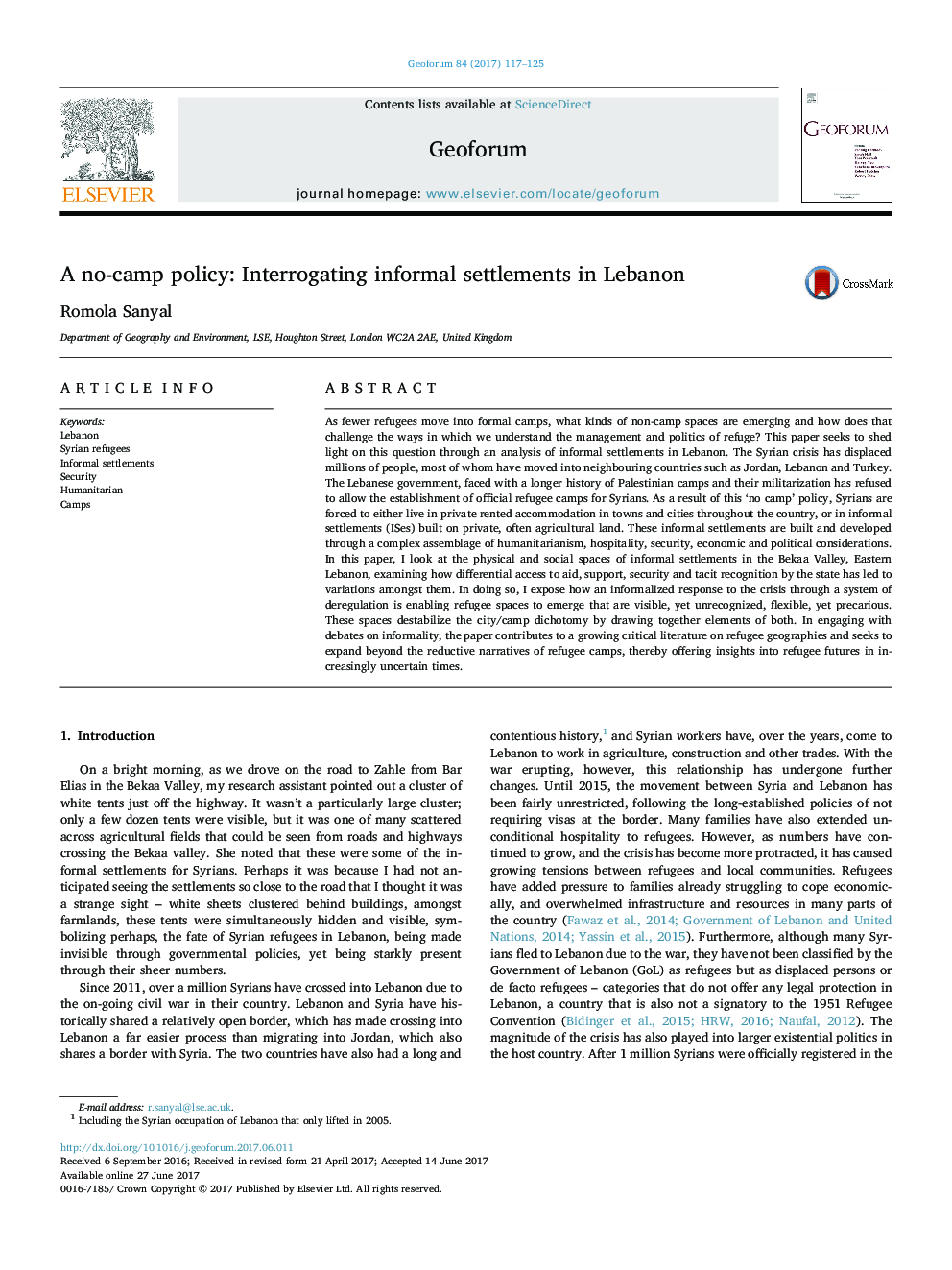| کد مقاله | کد نشریه | سال انتشار | مقاله انگلیسی | نسخه تمام متن |
|---|---|---|---|---|
| 5073282 | 1477105 | 2017 | 9 صفحه PDF | دانلود رایگان |
- Critically investigates informal settlements for Syrian refugees in Lebanon.
- Draws attention to the grey spaces of refuge that sit between city and camp.
- Uses informality as deregulation to interrogate the emergence and unevenness of refugee responses and spaces in Lebanon.
- Offers new ways to think about refugee futures.
As fewer refugees move into formal camps, what kinds of non-camp spaces are emerging and how does that challenge the ways in which we understand the management and politics of refuge? This paper seeks to shed light on this question through an analysis of informal settlements in Lebanon. The Syrian crisis has displaced millions of people, most of whom have moved into neighbouring countries such as Jordan, Lebanon and Turkey. The Lebanese government, faced with a longer history of Palestinian camps and their militarization has refused to allow the establishment of official refugee camps for Syrians. As a result of this 'no camp' policy, Syrians are forced to either live in private rented accommodation in towns and cities throughout the country, or in informal settlements (ISes) built on private, often agricultural land. These informal settlements are built and developed through a complex assemblage of humanitarianism, hospitality, security, economic and political considerations. In this paper, I look at the physical and social spaces of informal settlements in the Bekaa Valley, Eastern Lebanon, examining how differential access to aid, support, security and tacit recognition by the state has led to variations amongst them. In doing so, I expose how an informalized response to the crisis through a system of deregulation is enabling refugee spaces to emerge that are visible, yet unrecognized, flexible, yet precarious. These spaces destabilize the city/camp dichotomy by drawing together elements of both. In engaging with debates on informality, the paper contributes to a growing critical literature on refugee geographies and seeks to expand beyond the reductive narratives of refugee camps, thereby offering insights into refugee futures in increasingly uncertain times.
Journal: Geoforum - Volume 84, August 2017, Pages 117-125
